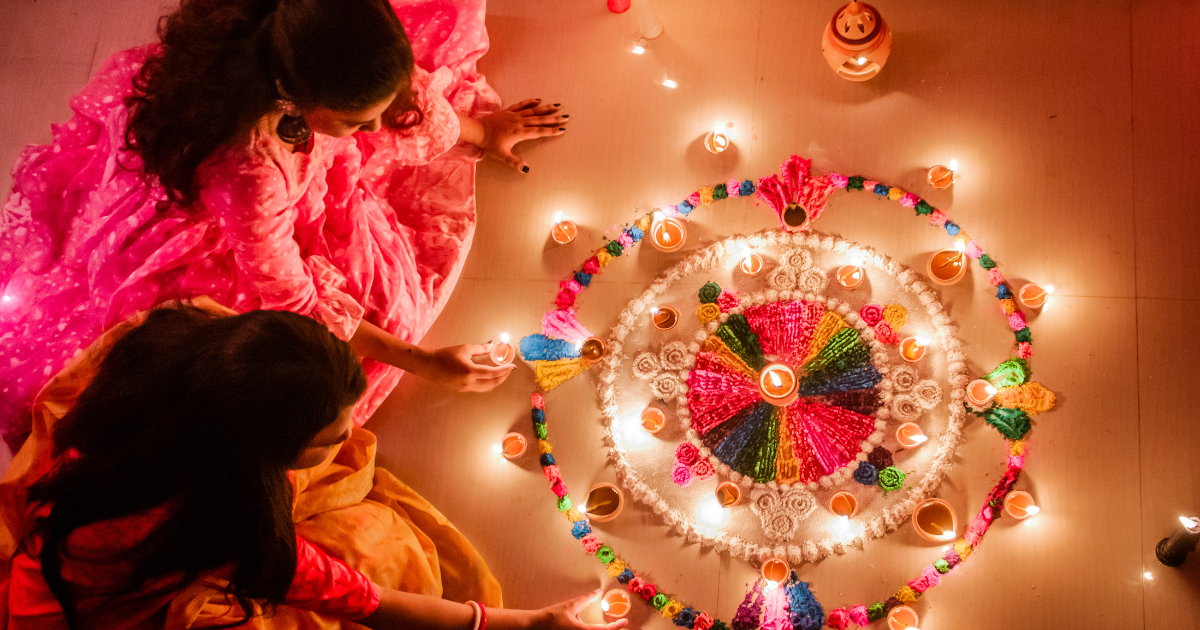Diwali: Festival of Lights
Diwali, also known as the “festival of lights,” is a five-day Hindu festival that is celebrated annually in late October or early November. The festival is one of the most important and widely celebrated festivals in India and is also celebrated by Hindus, Sikhs, and Jains around the world. The word “Diwali” comes from the Sanskrit word “Deepavali,” which means “row of lights.” The festival symbolizes the victory of light over darkness, good over evil, and knowledge over ignorance.
The festival of Diwali is celebrated to mark the return of Lord Rama, along with his wife Sita and brother Lakshmana, to their kingdom of Ayodhya after defeating the demon king, Ravana. According to Hindu mythology, the people of Ayodhya lit diyas (small clay lamps) and lit up the entire kingdom to welcome their king and celebrate the victory of good over evil. This is why lighting diyas and candles is an important part of the Diwali celebration.
Diwali is celebrated for five days, with each day having its significance and rituals. The first day is known as Dhanteras, which is considered to be an auspicious day for buying gold and other valuables. The second day is Choti Diwali, which is celebrated by lighting diyas and candles around the house, and by bursting firecrackers. The third day is Diwali, which is the main day of the festival. It is celebrated by lighting diyas and candles, and by exchanging sweets and gifts with friends and family. The fourth day is Govardhan Puja, which is celebrated by making small mountain-like structures out of cow dung and worshiping them. The fifth day is Bhai Dooj, which is celebrated by sisters putting tilak (vermilion powder) on their brothers’ foreheads and praying for their well-being.
One of the most important customs of Diwali is the lighting of diyas and candles. These lights are said to symbolize the victory of light over darkness, and the victory of good over evil. People light diyas and candles in their homes, offices, and on the streets to mark the festival. Rangolis, which are colorful designs made on the floor using powder or flowers, is also a popular decoration during Diwali. They are usually made at the entrance of homes to welcome the goddess of wealth, Lakshmi, into the household.
Another important custom of Diwali is the exchange of sweets and gifts with friends and family. People prepare a variety of sweets such as laddoos, barfis, and rasgullas, and exchange them with their loved ones. They also exchange gifts such as clothes, jewelry, and household items.
Diwali is not just a Hindu festival but it is also an occasion to celebrate the victory of good over evil, light over darkness, and knowledge over ignorance. It is a time for people to come together and celebrate with friends and family. The festival of Diwali also has a strong emphasis on spirituality, with many people fasting and performing puja (worship) to mark the occasion.
In conclusion, Diwali is a five-day festival that is celebrated by Hindus, Sikhs, and Jains around the world. It marks the victory of light over darkness, good over evil, and knowledge over ignorance, and is celebrated by lighting diyas and candles, exchanging sweets and gifts, and performing puja. It is a time for people to come together and celebrate with friends and family, and it has a strong emphasis on spirituality. It is a festival of joy and happiness.

